If you’re a dog owner, you want nothing more than for your dog or dogs to be in tip-top shape and perfect health.
But you also know how hard it is to resist those big soft eyes when they peer up at you from under the table, begging for just the tiniest taste of whatever you’re eating. Sometimes, maybe even more times than you’d like to admit, you’ve snuck them a little something from your plate.
There are all kinds of reasons not to feed your dogs from the table. For one, it encourages bad habits, and secondly, there are lots of things that we eat that are seriously bad for dogs. However, other human foods are actually really good for them.
Some people like making their own dog food, but for many dog owners, that’s just not possible with all the time and work that has to go into it. Besides, plenty of dog foods out there are specially formulated to give dogs the right balance of nutrients they need.
So while sticking to kibble is a perfectly good idea, you can try supplementing your dog’s chow with some human foods. Try adding a little of these snacks to regular meals if your pooch seems like he could use a boost, or use the food during training and as everyday treats. However, always be sure to speak to your veterinarian first before introducing new food to your dog.
Read on to learn which “human foods” are best for your precious pup!
1. Lean Meat: Energy
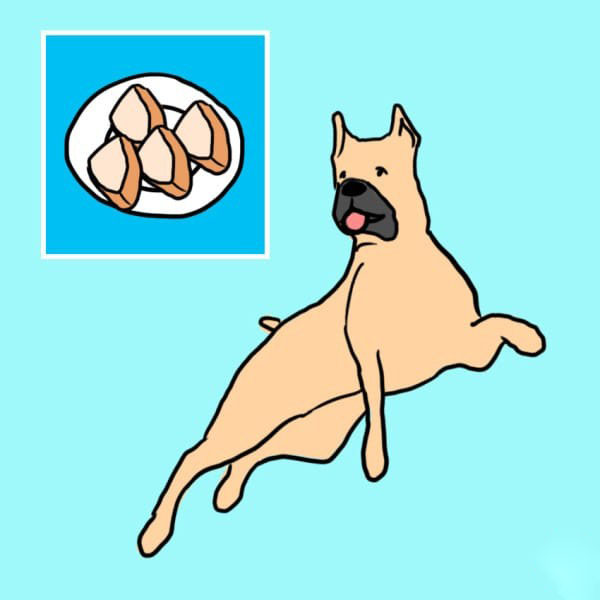
Dogs need meat, as it provides them with the bulk of their energy through its protein.
Lean meats like chicken, pork, and beef are also great sources of B vitamins and amino acids, which also boost energy and metabolism. Look for cuts of meat with no visible fat when buying meat for your dog, and avoid ground meat, which usually has a higher fat content.
Also beware of cooked chicken bones, as they can splinter and cause problems. Raw chicken bones are fine, though!
2. Salmon And Tuna: Shiny Coat And Healthy Immune System
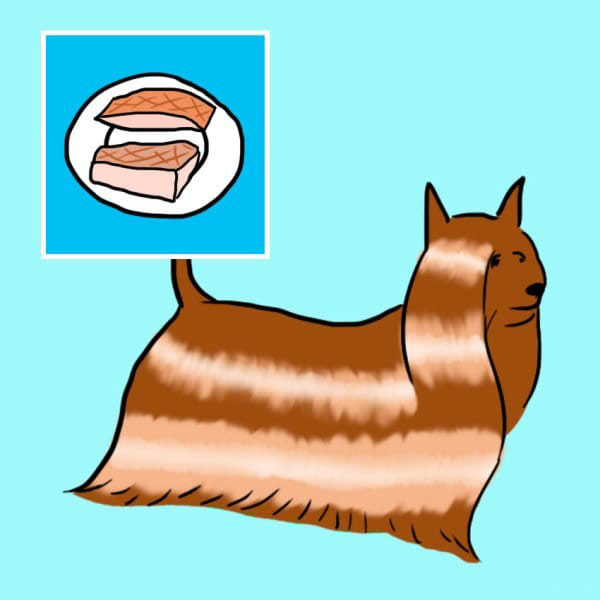
Fatty fish like tuna and salmon are great because of their high omega-3 fatty acid content, which is great for dogs both inside and out.
It helps maintain a shiny, healthy coat, and it’s also great for brain function and for your dog’s immune system.
Look for wild-caught, local fish when buying, and serve it cooked rather than raw.
As an alternative, you can also add fish oil to their regular food.
3. Liver: Vitamins A, B, And K

Liver is a fantastic source of vitamins and iron. In fact, it can contain much more of the essential nutrients your dog needs than muscle meat, and you can get it fresh from the grocery store or buy it freeze-dried or dehydrated at the pet store as dog treats.
While dogs love liver, be sure not to give them too much of it, as a lot of vitamin A is hazardous for them. Servings should not exceed an ounce for medium and large dogs or half an ounce for small dogs.
4. Oatmeal: Digestion
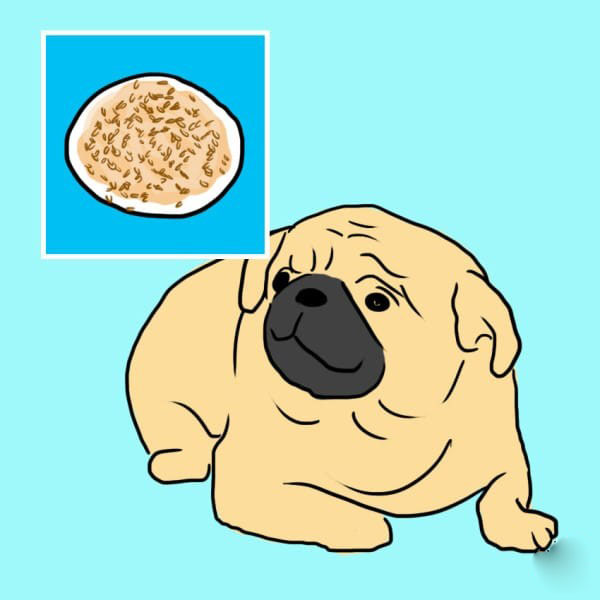
Oatmeal is a great source of fiber, which makes digestion smooth and comfortable, but it’s also a whole grain and better for your dog’s health than refined grains.
It’s especially good for older dogs who have digestive troubles. It’s also great for dogs with wheat allergies who can’t handle conventional dog foods.
Cook the oatmeal the way you would for yourself, but be sure to cool it down before serving it to your dog. Dogs are gulpers, and hot cereal can burn their mouths!
5. Parsley: Fresh Breath
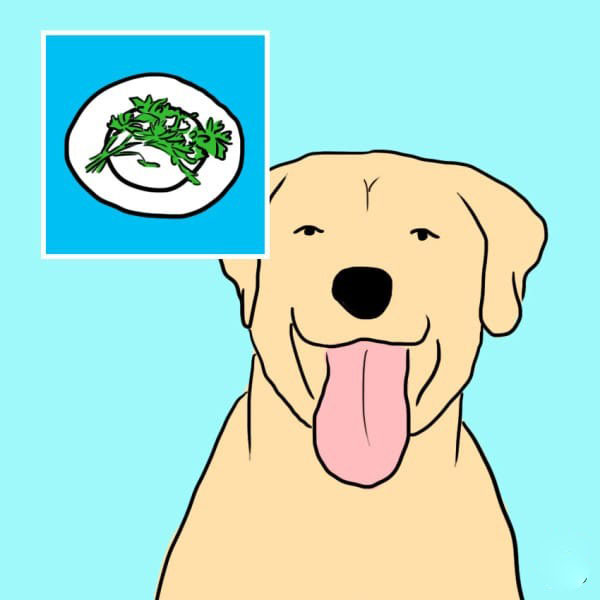
If your dog has stinky breath, chop up a few tablespoons of fresh parsley (either flat or curly, it doesn’t matter) and add it to your dog’s food to neutralize the odor.
Besides freshening your dog’s breath, parsley is also a good source of potassium and calcium.
6. Peas: Potassium
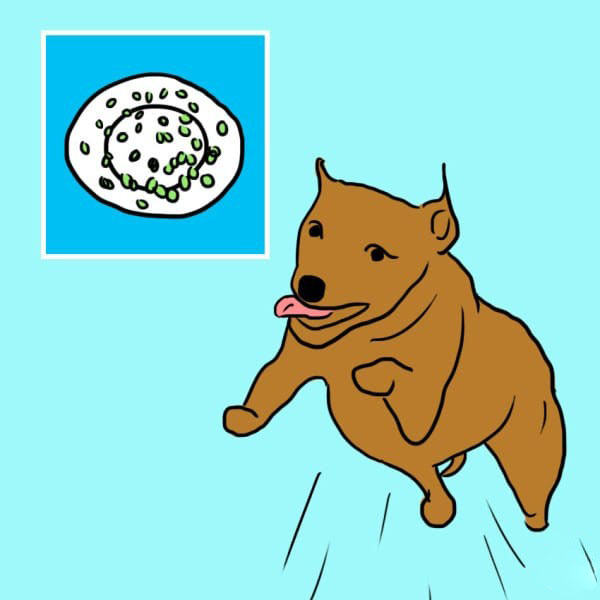
Potassium is a crucial mineral for overall health in dogs just like it is in humans.
They’re also full of phosphorous and vitamin B, and they’re a snap to add to your dog’s meals: simply pour a handful into their bowl!
7. Carrots: Healthy Teeth
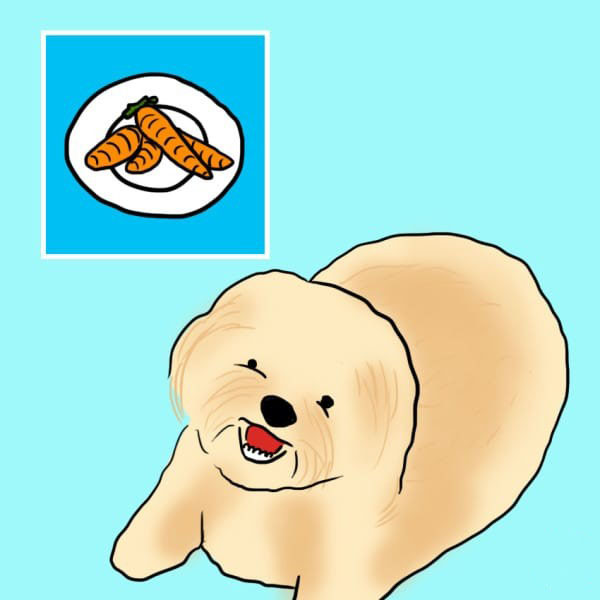
Carrots are great treats for dogs not only because of all their vitamins, but also because their hard, crunchy nature is great for scraping plaque and other gunk off your dog’s teeth. If left there, the plaque can lead to decay and infections.
Baby carrots are perfect, especially for smaller dogs, because they’re a manageable size and come already peeled.
8. Seaweed Nori: Metabolism
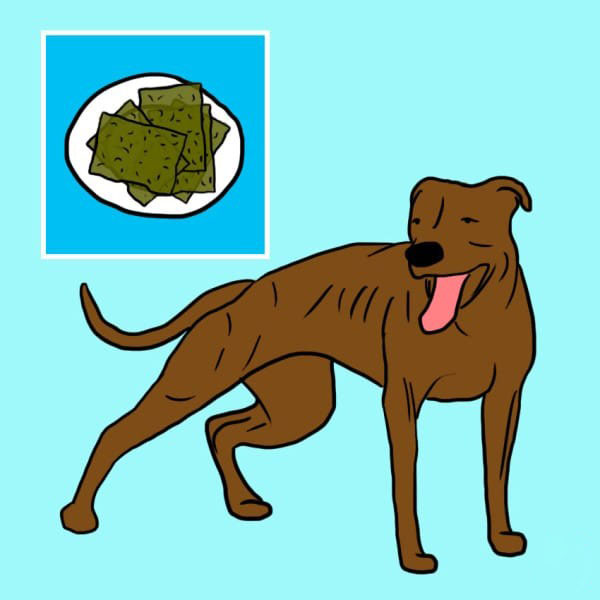
Nori is dried seaweed, popular in Japanese cuisine and often found wrapped around sushi rolls.
It’s rich in fiber and vitamins C and E. Additionally, its chlorophyll contents are also great for regulating metabolism, which is perfect for keeping your pooch in shape.
9. Yogurt Or Cottage Cheese: Calcium
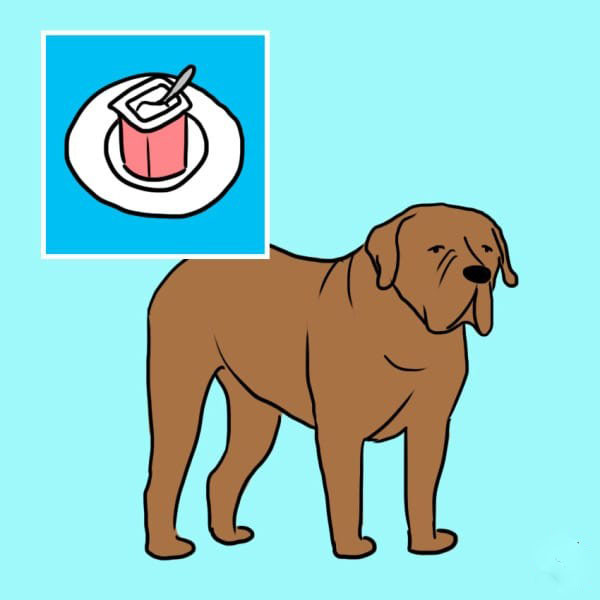
Dairy products like this are a great source of calcium for bone and tooth health, and yogurt and kefir have the added benefit of probiotics for a healthy digestive tract.
Just be sure to opt for the kind without any added sweeteners or fruit. For yogurts and cheeses, always look for skim or low-fat varieties.
Before feeding your dog dairy, make sure they’re not lactose intolerant!
10. Coconut Oil: Protein, Immunity, And Skin Health
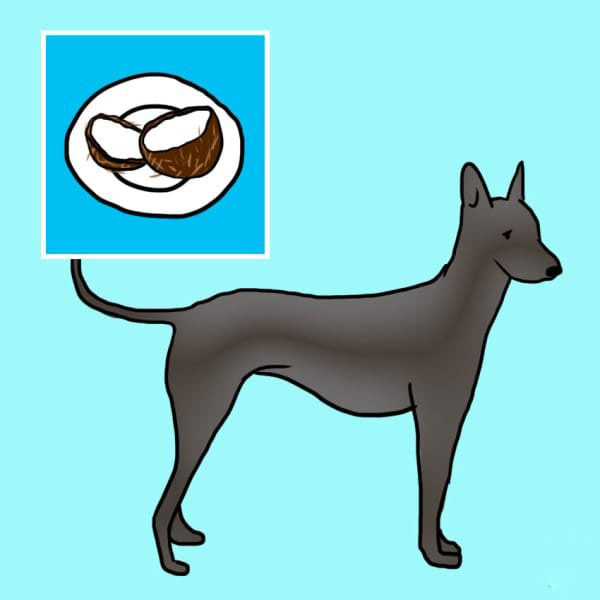
By now, you know that coconut and coconut oil are wonder foods, and they’re wonderful for your dog too!
Unsweetened coconut flakes can be added to meals, as can a scoop of coconut oil. The oil is great for nourishing your dog’s skin and fur, and it also contains monoglyceride monolaurin, which has antibacterial and antiviral properties. Additionally, it’s a high source of protein.
These foods are all great for dogs (and humans!) and can help your dog get the health boost they need and deserve for a long, happy life. Remember, always consult your veterinarian before feeding your dog anything new — and please Liked Video these tips with any dog owners you know!






